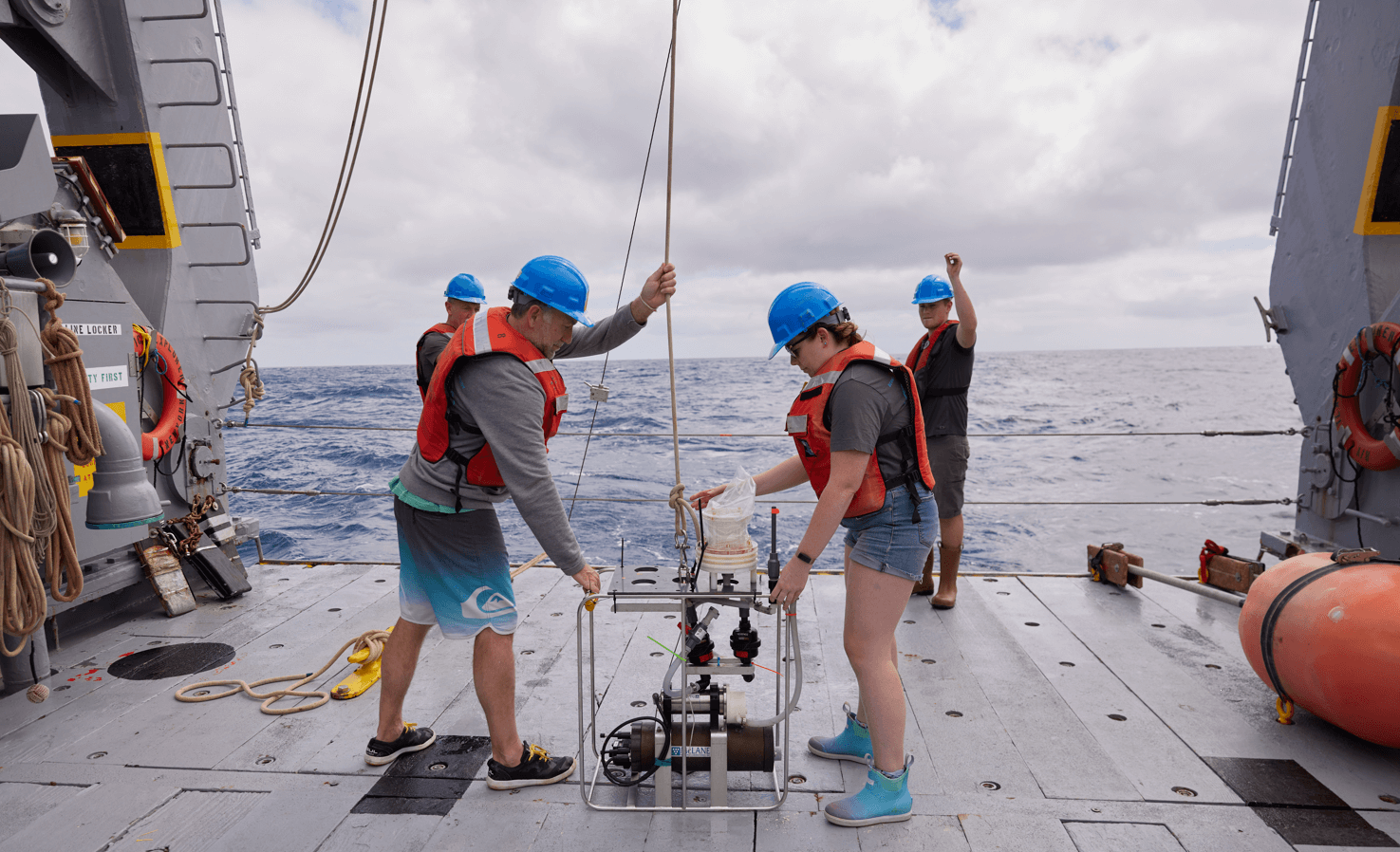TEMPE, Ariz. — The Atlantic Ocean is now warmer and more acidic than ever before, new research reveals. This conclusion is based on data gathered over 40 years of oceanic studies, highlighting a rapid change in the Atlantic’s composition, particularly in just the last four years.
Scientists have been conducting monthly samplings of the ocean’s surface and depths, focusing on its physical, biological, and chemical aspects, at a site roughly 50 miles southeast of Bermuda. This effort, part of the Bermuda Atlantic Time-series Study (BATS), has been ongoing since 1988.
“We show that the surface ocean in the subtropical North Atlantic Ocean has warmed by around 1°C over the past 40 years. Furthermore, the salinity of the ocean has increased, and it has lost oxygen,” says Professor Nicholas Bates, an ocean researcher at the Bermuda Institute of Ocean Sciences, a unit of the Julie Ann Wrigley Global Futures Laboratory at Arizona State University. “In addition, ocean acidity has increased from the 1980s to the 2020s.”
Further details from the Bermuda Institute of Ocean Sciences indicate that the ocean’s surface temperature has risen by about 0.24°C per decade since the 1980s. In total, the ocean’s temperature is now approximately 1°C higher than it was 40 years ago, with a notably sharper rise in the last four years. Alongside the temperature increase, the surface waters have become more saline, indicating a higher concentration of dissolved salt.

“We suspect this is part of the broader, more recent trends and changes in ocean temperatures and environmental changes, like atmospheric warming and having had the warmest years globally,” Bates continues in a media release.
“These observations give a sense of the rate of change in the recent past of ocean warming and ocean chemistry. They provide key indications of future changes in the next decades,” Bates adds. “They also are proof of regional and global environmental change and the existential challenges we face as individuals and societies in the near future.”
The data also showed that, over the past 40 years, the amount of oxygen available to aquatic organisms has decreased by six percent, while the acidity level of the water has risen by 30 percent. This increase in acidity has led to lower carbon concentrations.
These changes in the ocean’s composition could significantly affect marine life, especially organisms with shells.
“The ocean chemistry of surface waters in the 2020s is now outside of the seasonal range observed in the 1980s and the ocean ecosystem now lives in a different chemical environment to that experienced a few decades ago,” Prof. Bates concludes. “These changes are due to the uptake of anthropogenic CO2 from the atmosphere.”
The findings are published in the journal Frontiers in Marine Science.
You might also be interested in:
- Noisy water? Oceans will be 5 times louder by 2100, study explains
- Surprise hurricanes: Atlantic storms now twice as likely to go from weak to deadly in just 24 hours
- Gigantic ‘warming pool’ severely disrupting marine life discovered in the Pacific Ocean
South West News Service writer Isobel Williams contributed to this report.


Where is the data supporting “acidity level increased by 30%”?
NOAA data shows it’s only up from about ph 8.14 to 8.09.
The margin of error in measuring temperatures accounts for almost all of this.
Atlantic Ocean uninhabitable?
More fear-mongering. If it is uninhabitable, where is all the dead marine life?